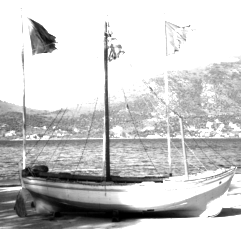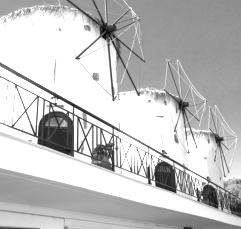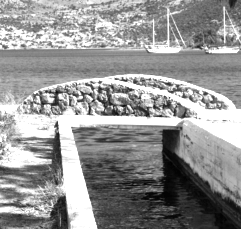











© Windmills-hotel 2013 - 2018
Powered by


Towards the direction of Karistos,
just 15 minutes away from
Almiropotamos, you can visit Stira
whose sunset, is one of the most
beautiful and breathtaking in the
Evian Gulf. You can also visit the
Dragonhouses who are nearby at
the Ohis mountain top. They are
small houses inhabited before 7
BC

Dragonhouses
Karistos- Kokkinokastro
15 min
You can visit the Archaeoligical
Museum and have a tour around
the impressive Castello Rosso
(Kokkinokastro/Red Castle). A bit
further, you can discover the old
watermills in the Platanistos

30 min
Having the Windmills as a base, you can have daily excursions and explore the sights of the surrounding area and not only
The Ancient Theatre of Eretria
This theare is the most
impressive of the
monuments of ancient
Eretria. It is situated on the
west side of the city of
Eretria, among the West
Gate, the Stadium and the
Ano Gymnasium. You can
also visit the south-west side of the area where it is
located the temple of Dionisos. It is one of the most well
known ancient monuments of its kind. According to the
research at the ruins of the temple, it was originally
constructed in 5 BC. After the destruction by the
Persians it was reconstructed and the period of its
highest peak was 4 BC.
The Archaeological Museum of Chalkis
The exhibits of the Archaeological
Museum of Chalkis are
chronologically placed from the
Palaeolithic Times until the After
Roman Times as the excavations
in Evia revealed. The findings that
are excibited in the museum comes from the settlement
and the cemetary of Manika (2800-1900 BC). Also there
are Mycenean ceramics and seats, the Economou
collection with ceramics and koroplastics from the
surrounding region. Collection of classic and hellinistic
coins from Chalkis, Eretria and Karistos, roman
dedicatory sculptures from Chalkis and Edipsos, tombs
from Chalkis, Nea Lampsakos and honorary mosaics.
In the yard of the Museum you can see mosaics, tombs
and roman sculptures. Some of the most worth seeing
exhibits are a seated female statue of 4 BC, a marble
tomb depicting a young man and a dog (second quarter
of the 4 BC), a dedicatory column that depicts Pluto and
Dionisos (mid 4 BC), a statue of Antinoos (2 BC), a
headless statue of Apollo or Dionisos (roman copy), a
female statue of the Hellinistic Times and two heads of
young male statues of the Archaeic.
The Oracle at Delphis was
the most known Oracle of the
Ancient Greece and of the
known world at the time. It is
sited in Delphis. It is
considered to be the centre of
the world because, according
to the myths, Zeus released
two eagles, one towards the
East and one towards the
West. The 2 birds met in
Delphis. The Oracle was
dedicated to god Apollo. Pithia was the medium that
was in contact with Apollo and through her the god
gave to men his prophesies and omens.
Delphis
The Acropolis- The Museum of Acropolis
On the rocky hill of Acropolis,
which dominates in the
centre of modern Athens,
was the most important and
most impressive sacred
place of the ancient city,
dedicated mostly to the
patroness of Athens,
goddess Athena. Around the temple of Acropolis are the
most important myths of ancient Athens. There where
big religious festivals, the oldest worship rituals of the
city and also some of the most decisive events in the
history of the city. The artifacts and ruins of Acropolis,
are combining harmonical with the natural environment.
Unique masterpieces of the the ancient architecture
that express pioneering correlations of the order and the
trends of Classical art. They had affected the spiritual
and artistic creation for the centuries that followed.
Acropolis was build 5 BC represents, in the most ideal
way, the greatness, the power and the wealth of Athens
at the time of its highest peak, the so called “Golden
Age” of Perikles.




40 min
120 min






